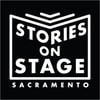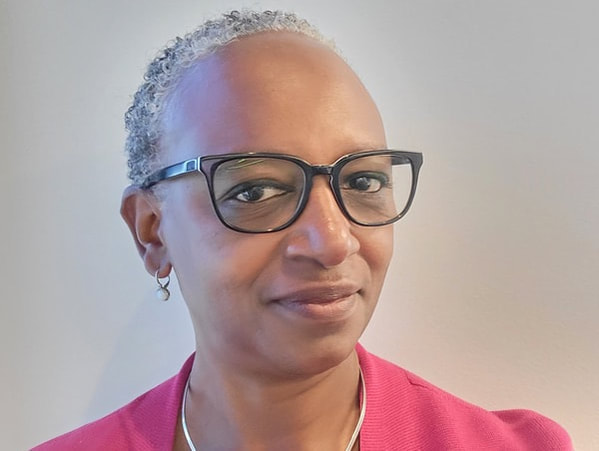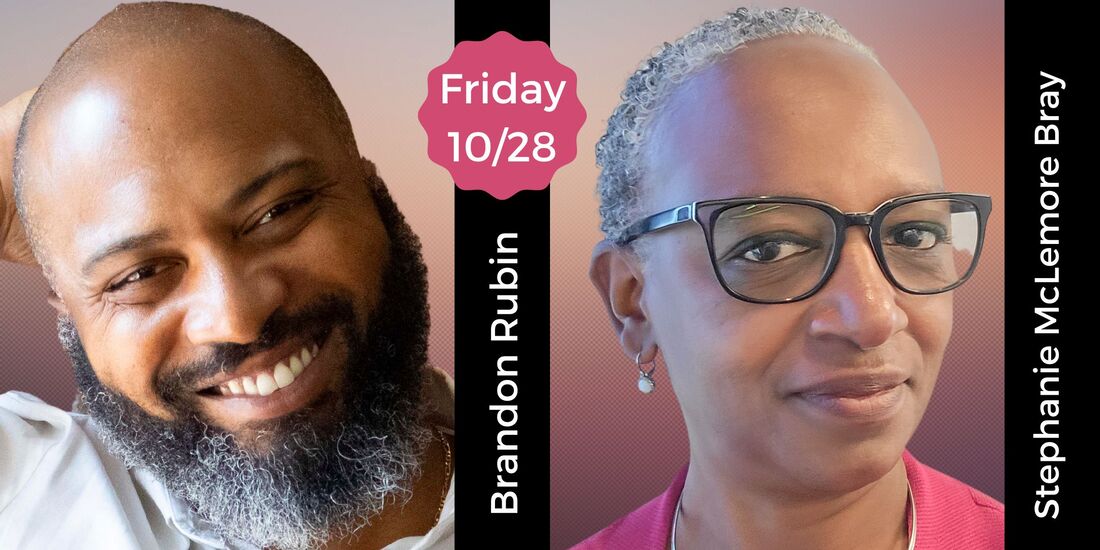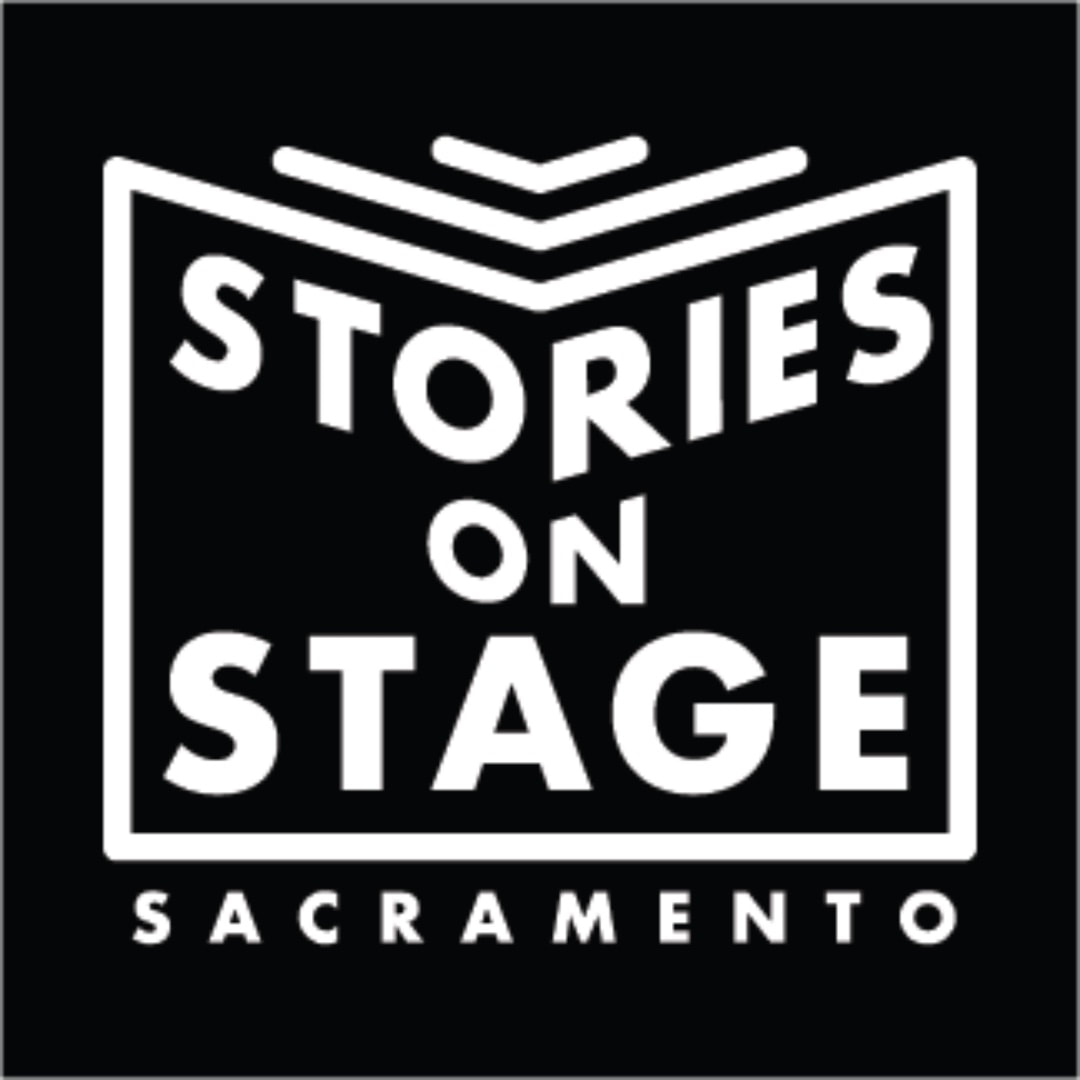Stephanie McLemore Bray's short story "Sherwood Green's Last Picture Show" will be featured at Stories on Stage Sacramento October 28 - at the Clara theater in midtown - Tickets are available here and at the door.
An Interview With Stephanie Bray by Sue Staats Stephanie Bray was the CEO of Sacramento’s United Way at a time of fundamental change in its mission and function. And although she’s since left for the Seattle Foundation, with its hugely funded commitment to addressing racial inequity, she left a lasting imprint on Sacramento, from United Way’s successful new focus on improving opportunities for kids in school, to the founding of Black Women Write. In a Zoom chat recently, we talked about her writing, the history behind the story you’ll hear at Stories on Stage, how her fiction relates to history and memory, why she doesn’t write memoir, and, of course, what she does for fun. Stephanie Bray is a woman who writes what she lives, and it was a pleasure and an honor to spend some time with her. Sue: What were you proudest of accomplishing when you worked with United Way of Sacramento? Stephanie: I'm proudest of helping the organization navigate a shift in its business model. If you’re familiar with United Way, it was started as a way for employees to give through their workplace. And over time, as people came to understand philanthropy better and that they could give directly to their favorite nonprofit organization, enthusiasm for the United Way model began to wane. So, maybe 25, almost 30 years ago, United Way started looking at how they, as a convener and intermediary, could impact poverty, specifically by bringing together other stakeholders, both donors and community members, to really tackle some of the biggest issues related to poverty, whether it was homelessness, food insecurity, or safe neighborhoods, and they came up with this new business model that really centered on the impact that they wanted to have in communities. Our United Way was no different. When I came in as CEO, we had taken some initial steps to do that work. Under my leadership, we really moved fully into that space, and we were able to impact many, many lives of children and families in a particular neighborhood in Sacramento. We did such amazing work that we got noticed by a major philanthropist, MacKenzie Scott, and got a $10 million gift from her. That was the capstone of the work that I did in the seven years I was there. Sue: It sounds like you had an incredibly good thing going. What prompted you to leave and go with the Seattle Foundation? Stephanie: Well, the reason was, quite frankly, they had really doubled down on addressing racial inequity in a way that I thought was compelling, and was certainly the direction that I wanted to go. It was a wonderful opportunity, and I wasn't looking. But what was so compelling to me was the commitment that the Seattle foundation made towards addressing racial inequity. And I mean in some radical ways. We are reimagining philanthropy, and how and whom and with whom we invest in change, and in particular systems change. It was an opportunity that I knew would stretch me in many ways, and would also enable me to bring forward all of my experience in the nonprofit sector. At the Seattle Foundation, I get to work with very wealthy people to help them figure out their philanthropy. And at the same time, I get to work for an organization that has really stepped fully into a civic leadership role. It’s an amazing opportunity. Sue: I can see that. And in reading the scholarly work on inequalities in Black medical care, and its roots in racism, that you have published, I can see that the Seattle Foundation matches what you have been advocating for, and studying, for years. But what’s fascinating to me is how you’ve linked this professional and scholarly commitment with your fiction writing. What made you do this? How does your profession, and your scholarly publications*, feed into the story to be read at Stories on Stage, “Sherwood Green’s Last Picture Show,” or with the doctor in your novel in progress, The Good Doctor? Stephanie: Well, it all relates to my background. I was born in the south, and my mother grew up in the Jim Crow South. And I grew up with stories about what it was like, for a family. My mother’s family were poor sharecroppers, and she would talk about how they never went to doctors. They relied on home remedies, and the only time they ever sought out medical care was if they broke a bone, because that prevented them from working. And when I think about my scholarly work, and about the connection to my fiction, it’s really remarkable. I've been a writer all my life, and since I was a little kid, I've always written fiction. I've played with poetry too. I'm a horrible poet, but I've always loved fiction. And I've always been fascinated by how, in spite of all of those barriers, my mother, and her family, were able to live a life of dignity, in the midst of a time that, quite frankly, was a terrifying time for Black people in the South. And to be able to live through that, and still have periods of joy and happiness, and an appreciation for what they had. That was remarkable to me. But the other side of that is all of the potential for loss. And so when I write stories that center on race and racism, it’s really about acknowledging, honoring and recognizing the humanity of folks who were treated like they were less than human. The story I wrote about Sherwood Green (the one being read at Stories on Stage Sacramento) comes from my mother telling me about what it was like for them when they went to the movies in the Jim Crow South. Black people had to sit up in the balcony. And, she said, they actually did some pretty horrible things. They’d threw things down on the white people, peanuts and candy wrappers. And she told me about the segregation, the separate bathrooms and water fountains (all that that was in her lifetime). I was always intrigued by those stories. And then in terms of the inspiration for The Good Doctor: my mother would talk to me about all of the different home remedies, and how my grandmother was my mother's midwife. I was born in the house that they lived in on the land that they sharecropped. And my grandmother was my mother's midwife. So these are things that I'm deeply connected to. Sue: Stephanie, your family story is really captivating, and deeply powerful. So my question is, again: why fiction? Why not memoir? Stephanie: I ask myself that a lot, too. And what I always come back to is what Toni Morrison said, when somebody asked her if she was ever going to write her memoirs. She said, You know, I don't think that my life is particularly interesting. The worlds that are in my head, those stories that I carry, are much more fascinating to me. I’m fascinated by the characters, and their motivations. Some of them I just deeply despise, but they're real, they're as real to me as you are. I was never particularly interested in writing a memoir, because the stories in my head are just so much more compelling. Sue: What writers do you most admire? Is there anyone you model your work after? Stephanie: Well, Toni Morrison is somebody I've read since I was in college, and I’m just astonished by the power. Gabriel Garcia Marquez is another favorite. My daughter says that when you read his work, you feel like you’re in a dream. Most recently, I’m intrigued by Colson Whitehead. His work is all so different, and the command that he has of language and the authority with which he writes! When I read The Underground Railroad, and I realized that he had actually envisioned it as a railroad. I threw the book across the room. Why didn't I think of that? That's so brilliant, and I didn’t even believe it was true for one minute! Sue: I have to say that your writing reminds of Colson Whitehead’s work, partly because the historical period in which you’ve set the two pieces I’ve read—one in the 1950s, and one in the 1930s. I’m wondering if you set everything in the past, and why. Does it relate to the stories of your family that you have in your head? Stephanie: I do have stories that are more current, but they all center around a particular place. The Good Doctor, and the Sherwood Green story are set in the same town, but during different time periods. A novel I’m currently writing is set in the 70s in the same town. The civil rights movement was happening then. And earlier: I go back to hearing my mother talk about what it was like back then: it wasn't until she was in high school that she went to an integrated school. I'm just fascinated by that period of time. And, again, what did we do, as a race of people who were defined by that race, and for whom racism was designed. How did we, and how do we make it? How do we get through that? I think of The Good Doctor as a love story, really. You have this character who could have made a different choice, and decided to go back and provide health care to the people in the town where he was born. The story talks about race, it talks about class, but it's a love story, in a way. And it comes at a huge cost for him, a huge cost. So place is the connection for me. It's really about place. Sue: You started a writing group here in Sacramento, Black Women Write. Tell me about that. It sounds like way more than just a gathering of writing buddies. Stephanie: So, I started Black Women Write in March of 2018. I had tried it once before, and it wasn't successful. What compelled me to do it a second time was, I felt like we needed to create a space. And certainly, I needed a space. So it was really selfish of me, but I wanted a space where I could bring Black women writers together, where we could hold one another accountable for our writing practice, with a goal of getting published. What’s really interesting is that the week before I decided to do it was the week before Stephon Clark was killed. I had no way of knowing that would happen, of course, but it was quite prescient. So, we had our first session in April 2018, and it was one of the most moving and powerful things. Nearly 40 women came together at Underground Books. It was standing room only. We had a guest speaker, Jacinda Townsend, who just published her second novel, Mother Country. At the time, she was a professor at UC Davis. I had reached out to her, cold, and I said, I'm starting this group, will you come be our first guest speaker? And she said, Absolutely. And so she came, and she and I had a conversation, and then she gave us two writing prompts. It was so powerful. There were tears and laughter—it was just this community coming together. And now, we’re going to celebrate our fifth anniversary next year. It’s been virtual since the pandemic, but they’re talking about returning to in person again. And we've had a number of published authors come out of the group. and award-winning authors who came to us because they wanted to be part of the community, and they wanted that accountability, that inspiration. We’re really proud of them. Sue: That’s wonderful. It’s an amazing thing. Stephanie: Yes, and it looks like we're probably going to start one here in Seattle. I'm the founder, but I'm not the president anymore. We're in the process of applying for a 501(c)(3) non-profit tax designation so that we can cover our costs and raise funds to send members to writers conferences and retreats, and to encourage and support Black women writers on their journey towards publication. Sue: Let’s return to your work. You write fiction with great confidence and skill and originality. Have you studied with anyone, or are you just a really perceptive reader who has developed on her own? Stephanie: Probably a combination. I am a complete bibliophile. I mean, I have books. It's crazy. And fiction is my jam. So I read constantly, when I can. I've taken some workshops. I did a weekend workshop with Karen Joy Fowler, I've been in critique groups, I took a couple of classes on creative writing. And I just write. I just write, whenever I can. Sue: I'm wondering if you have ever heard your own work read out loud, like we do at Stories on Stage. Any expectations? Trepidations? Stephanie: I've never had my work read, so I'm excited about this. I mean, of course I'm anxious. Because, I've written a lot of stuff, but I haven't submitted a lot. Black Women Write forced me to get over the fear of submitting stuff. Sue: Why were you afraid to submit? Stephanie: It wasn't so much about rejection, it was really more that my work is such a deeply personal thing for me. And I had to really overcome that. Also, it was hard for me to run a group and not follow the rules, and expect other people to do what I wasn't willing to do. But, even agreeing to do Stories on Stage, I was like Oh my gosh, oh, goodness, gracious. I went back and forth and I'm like, Oh, what am I going to submit, and at one point I said, Okay, you have to decide you're either going to do it or you're not I said, Hey, I'm gonna do it. Sue: And we’re really glad you did! Both pieces were very strong, but we loved Sherwood, and also the relevancy to today’s events that shows up at the end. And the actor we’ve selected is terrific. I think you’ll be very, very pleased. So, Stephanie – digging into your background, as I did, I came on your LinkedIn profile. You list all of your many skills and accomplishments and at the end, in my favorite line, you identify yourself as wife, mother, sister, daughter, friend. It got me wondering: is this in order of preference? And if not, which would you list first? Stephanie: Oh, wow. They're not in any order. I would say that they all carry a tremendous amount of pride and joy, and it’s an honor for me to be defined in each of those ways. It's hard to say. They’re all important. Sue: Maybe it’s not really a fair question – sort of like asking you who your favorite child is! Stephanie: Yes. And it depends on the day, too. It's like, oh, I don't feel like I'm being a good mother today or I’m not being a great friend. But all of them are true. It's an honor for me to define myself in that way. It really is. Sue: Okay, last question.What do you do for fun? Stephanie: I write! Thank you Stephanie Bray, wife, mother, sister, daughter, friend, and I would add, amazing person and community leader. This interview was edited for length and clarity. For more insight into Stephanie’s thinking and accomplishments, you can find more on her LinkedIn profile. Linked below is an outstanding article (March 2020) about the nature of racism, and how it affects philanthropy. I know—academic paper, dry, likely boring—but trust me. Read it. Your eyes will be opened. First, Do No Harm: Why Philanthropy Needs to Re-Examine Its Role in Reproductive Equity and Racial Justice Karen A. Scott, Stephanie Bray, and Monica R. McLemore
0 Comments
Leave a Reply. |
|
Who We AreLiterature. Live!
Stories on Stage Sacramento is an award-winning, nonprofit literary performance series featuring stories by local, national and international authors performed aloud by professional actors. Designated as Best of the City 2019 by Sactown Magazine and Best Virtual Music or Entertainment Experience of 2021 by Sacramento Magazine. |
|



 RSS Feed
RSS Feed
